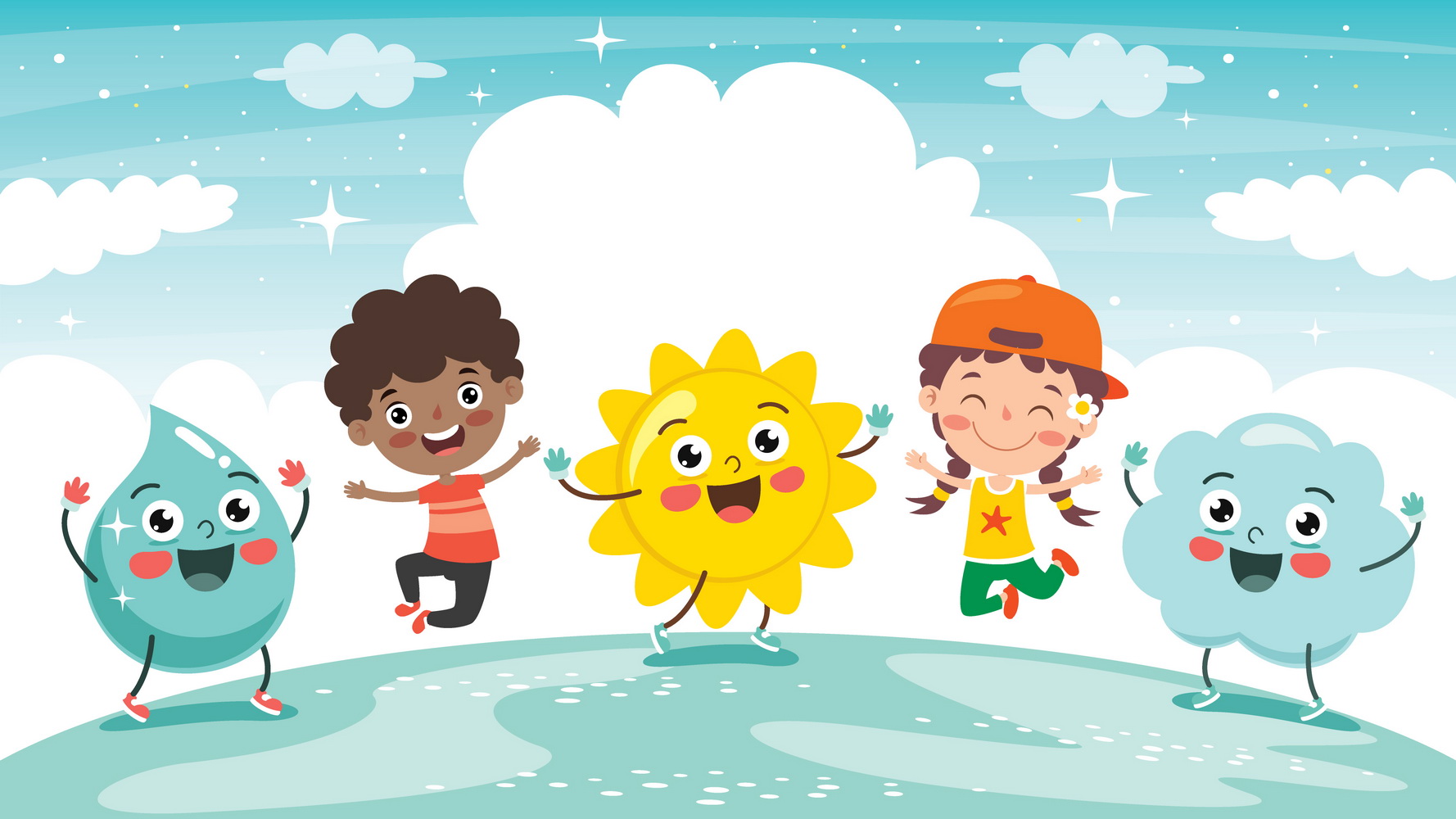Animal knowledge Normal Worksheets for Ages 3-6
5 filtered results
-
From - To
Discover our engaging "Animal Knowledge Normal Worksheets" designed for children ages 3-6! These colorful and interactive worksheets focus on enhancing young learners’ understanding of various animals and their habitats. Each worksheet encourages curiosity and promotes essential skills like identification, reproduction, and problem-solving through fun activities. Perfect for use at home or in the classroom, these resources support early education in a playful, creative manner. Your little ones will enjoy exploring the animal kingdom while developing essential knowledge through diverse exercises. Download now to provide an exciting, educational experience in animal knowledge for your child!
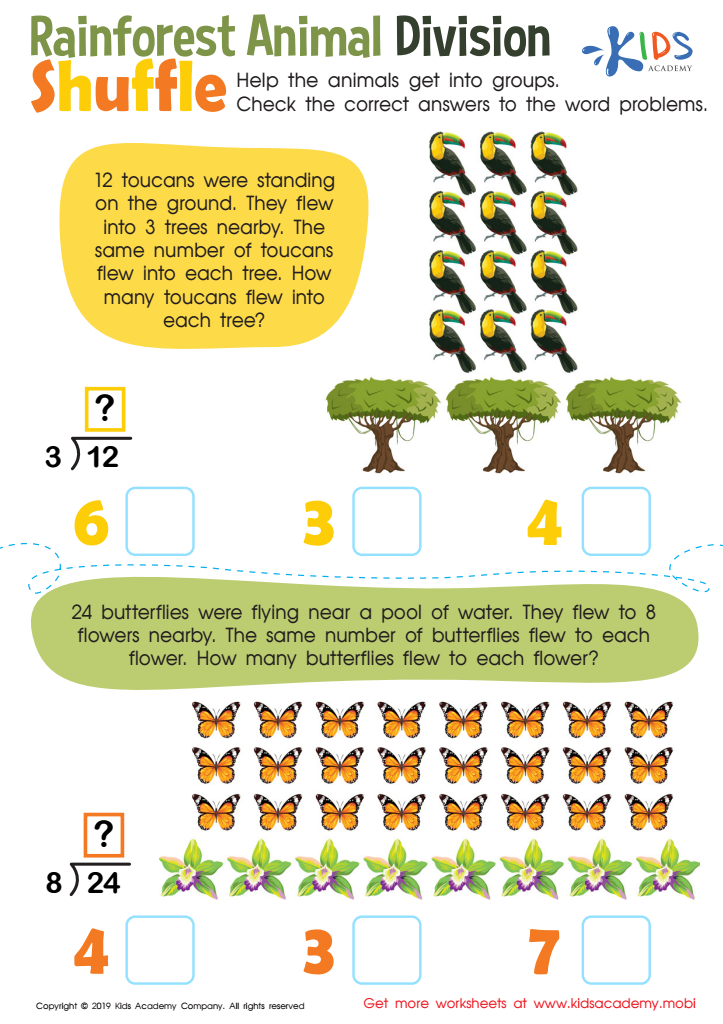

Rainforest Animal Division Worksheet
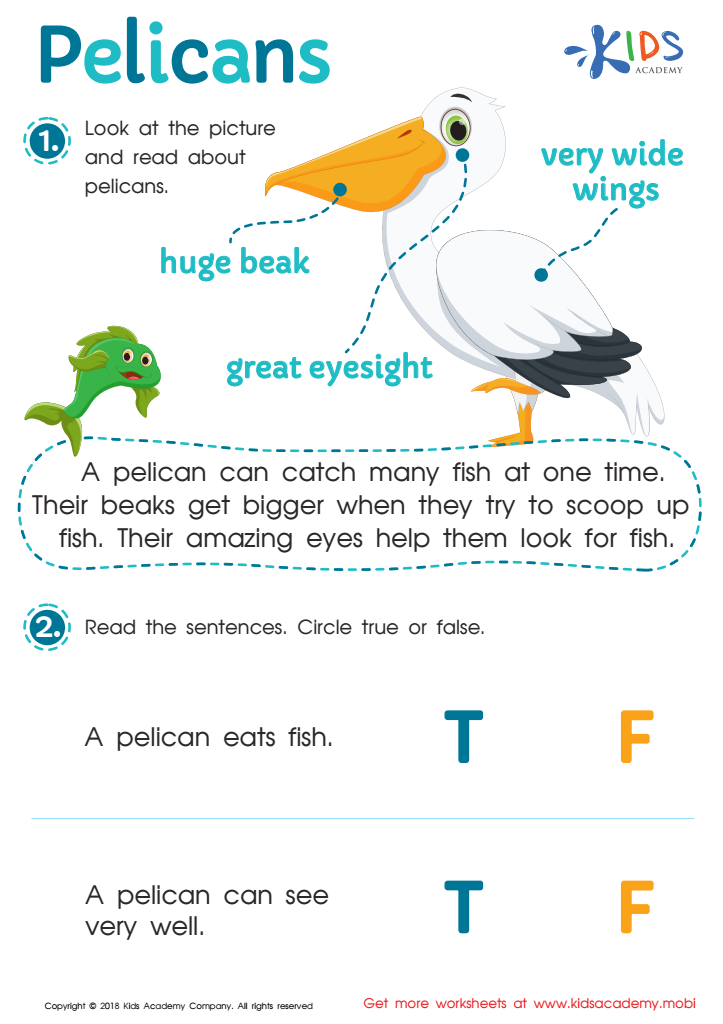

Pelicans Worksheet
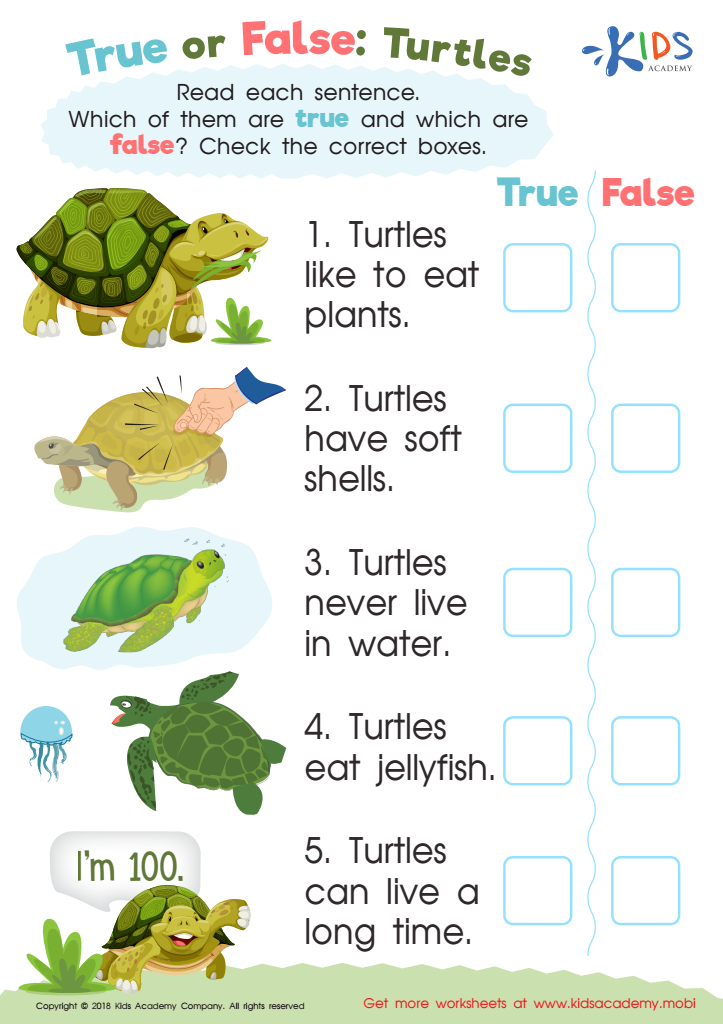

True or False: Turtles Worksheet
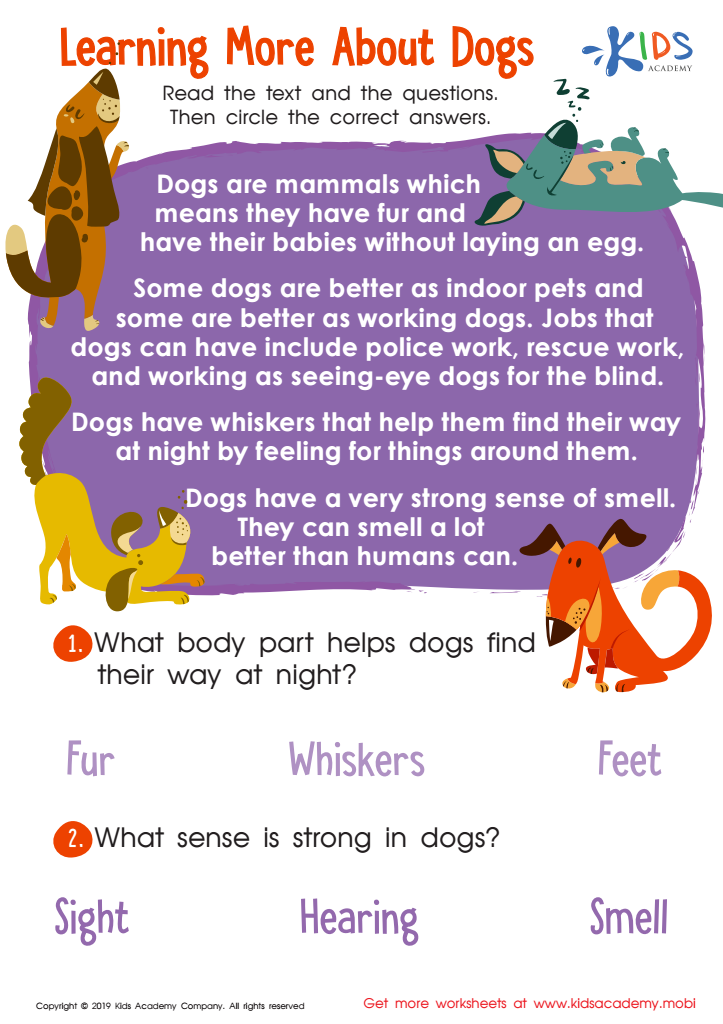

Learning More About Dogs Worksheet
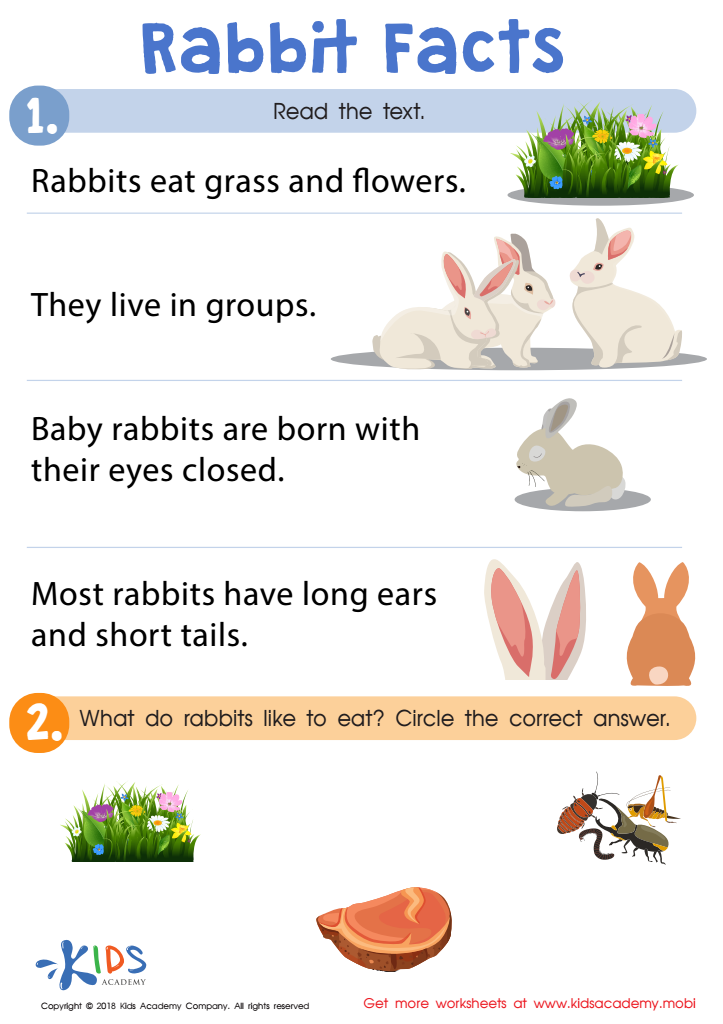

Rabbit Facts Worksheet
Understanding animal knowledge is crucial for children ages 3-6 as it plays a pivotal role in their cognitive, emotional, and social development. At this age, children are naturally curious and show a keen interest in the world around them, making it an ideal time to foster this curiosity about animals.
Early animal education enhances observational skills and encourages inquiry-based learning. When children learn about different animals, their habitats, and behaviors, they develop critical thinking and literacy skills as they engage in exploration and discussion. Additionally, understanding the role of animals in ecosystems helps children appreciate biodiversity and the environmental issues we face today.
Emotional skills are also nurtured as children explore human-animal relationships, fostering empathy and compassion. Learning how to care for animals builds responsibility and teaches kindness, which are vital social skills.
Moreover, animal knowledge integrates well into various subjects such as science, art, and storytelling, making learning multidimensional and enjoyable. Overall, by prioritizing animal knowledge, parents and teachers set the foundation for well-rounded, empathetic, and environmentally-conscious individuals. As children develop their understanding of animals, they not only learn more about the world but also about themselves and their place within it.
 Assign to My Students
Assign to My Students


